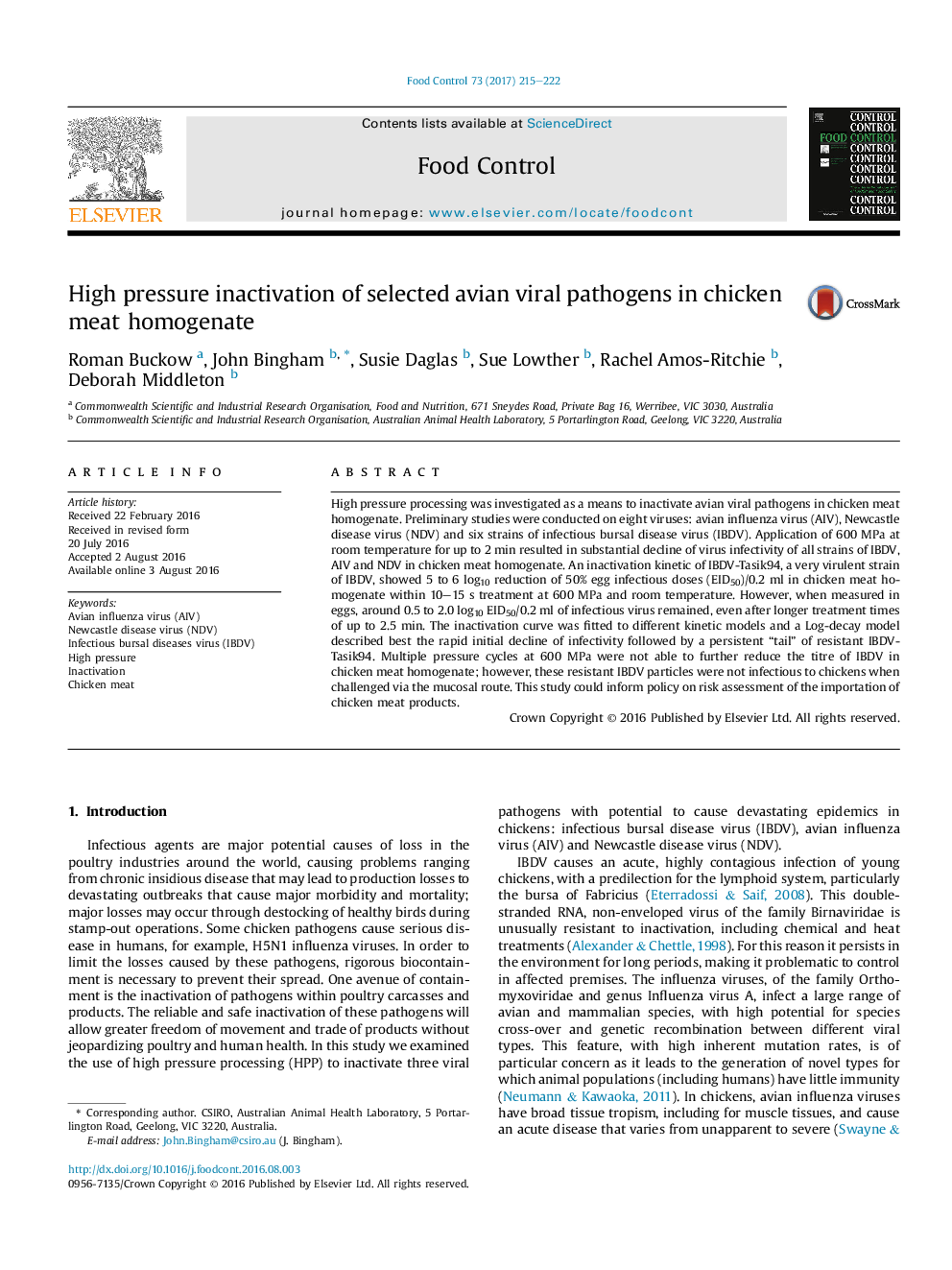| Article ID | Journal | Published Year | Pages | File Type |
|---|---|---|---|---|
| 5767633 | Food Control | 2017 | 8 Pages |
â¢Inactivation of pathogenic avian viruses during high pressure processing was investigated.â¢Avian influenza, Newcastle disease and six strains of infectious bursal disease virus were tested.â¢2 min treatment at 600 MPa resulted in substantial inactivation of viruses in chicken meat homogenate.â¢A very virulent strain of infectious bursal disease virus showed some persistent particles.â¢Resistant IBDV particles were not infectious to chickens when challenged via the mucosal route.
High pressure processing was investigated as a means to inactivate avian viral pathogens in chicken meat homogenate. Preliminary studies were conducted on eight viruses: avian influenza virus (AIV), Newcastle disease virus (NDV) and six strains of infectious bursal disease virus (IBDV). Application of 600 MPa at room temperature for up to 2 min resulted in substantial decline of virus infectivity of all strains of IBDV, AIV and NDV in chicken meat homogenate. An inactivation kinetic of IBDV-Tasik94, a very virulent strain of IBDV, showed 5 to 6 log10 reduction of 50% egg infectious doses (EID50)/0.2 ml in chicken meat homogenate within 10-15 s treatment at 600 MPa and room temperature. However, when measured in eggs, around 0.5 to 2.0 log10 EID50/0.2 ml of infectious virus remained, even after longer treatment times of up to 2.5 min. The inactivation curve was fitted to different kinetic models and a Log-decay model described best the rapid initial decline of infectivity followed by a persistent “tail” of resistant IBDV-Tasik94. Multiple pressure cycles at 600 MPa were not able to further reduce the titre of IBDV in chicken meat homogenate; however, these resistant IBDV particles were not infectious to chickens when challenged via the mucosal route. This study could inform policy on risk assessment of the importation of chicken meat products.
